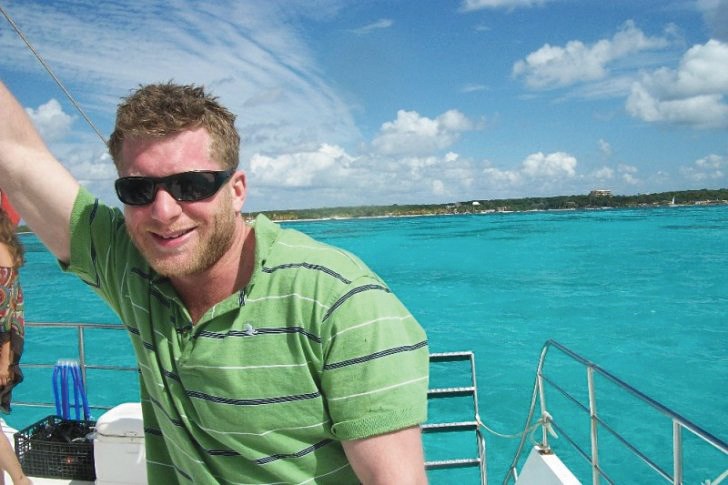Another year has passed without answers for the family of Myles Gray about whether the police officers they hold responsible for his death will face charges.
Gray, a 33-year-old Sechelt businessman, was making deliveries near South East Marine Drive in Vancouver on Aug. 13, 2015 when he became involved in an altercation with several Vancouver police (VPD) officers responding to a call about a man spraying a woman with a garden hose.
Gray died as result of severe injuries, but very few details of what happened are public, and no civilian witnesses have come forward.
A statement of background facts, presented as part of a 2017 court petition filed by the Independent Investigations Office (IIO) against a VPD constable described as a “key witness,” outlined a list of the injuries suffered by Gray, including: a broken nose, fractured voice box, dislocated jaw, fractures around the eye socket, a broken rib and sternum, “hemorrhagic injury of one testicle” and bruising of the legs and arms.
The IIO probe came to a close in January 2019, with a report forwarded to Crown counsel asking for consideration of charges.
In a post on the Justice for Myles Gray Facebook page in late March, Gray’s mother Margie Reed wrote that “Myles’ case has not been forgotten about in these COVID-19 days,” and that she’d spoken with Crown prosecutors who told her they were continuing their review.
“I’m hoping their decision is wrapped up before the five year mark,” Reed said in the post.
That now seems unlikely. Dan McLaughlin, communications counsel for the BC Prosecution Service said Aug. 6 that the office does not have a timeline for the completion of the charge assessment process.
“This has been the most challenging and horrifically frustrating time for me and my family,” Reed told Coast Reporter. “You can’t put a dollar amount on the trauma… It’s been horrendous.”
A civil suit filed by Gray’s parents against the City of Vancouver, the VPD and several “John Doe” police officers is still before the courts but has not moved forward.
Police accountability has been increasingly in the spotlight since the death of George Floyd at the hands of police in Minneapolis, Minn., in late May sparked a wave of protests, including one in Sechelt June 7 that drew more than 1,000 people.
Demonstrators and activists have demanded action against systemic racism, defunding and reforming police forces and mandatory body cameras.
Reed has added her voice to the call for mandatory body cameras, saying in her son’s case, where there we no civilian witnesses to what happened, body cameras could have made a crucial difference.
“It would have 100 per cent made a difference,” Reed said. “Maybe [police] wouldn’t have done what they did. And, the IIO’s work would have been much easier.”
Powell River-Sunshine Coast MLA Nicholas Simons was recently named to chair a legislature committee reviewing the province’s Police Act and he said he expects some of the issues raised by Gray’s death will come before the committee, which was set to start meeting Aug. 10.
“Working with Margie [Reed] on trying to get answers with respect to the death of her son has shown me where some potential flaws or areas of inquiry need to be directed by the committee,” Simons said, acknowledging that one of those areas will almost certainly be the issue of mandatory body cameras.
“In this particular case, along with others that I've looked at in the past, questions arise around accountability and I think that’s really the key in addressing sort of the general concerns that have been expressed and the transparency that’s required in order to oversee [policing].”
Reed said she hopes the committee’s work will lead to changes in other areas as well, like police training, protocols for handling mental-health-related calls and overall police accountability for their actions.
“Since Myles there have been so many people who’ve been unjustly killed – they weren’t armed, they weren’t dangerous,” she said.



